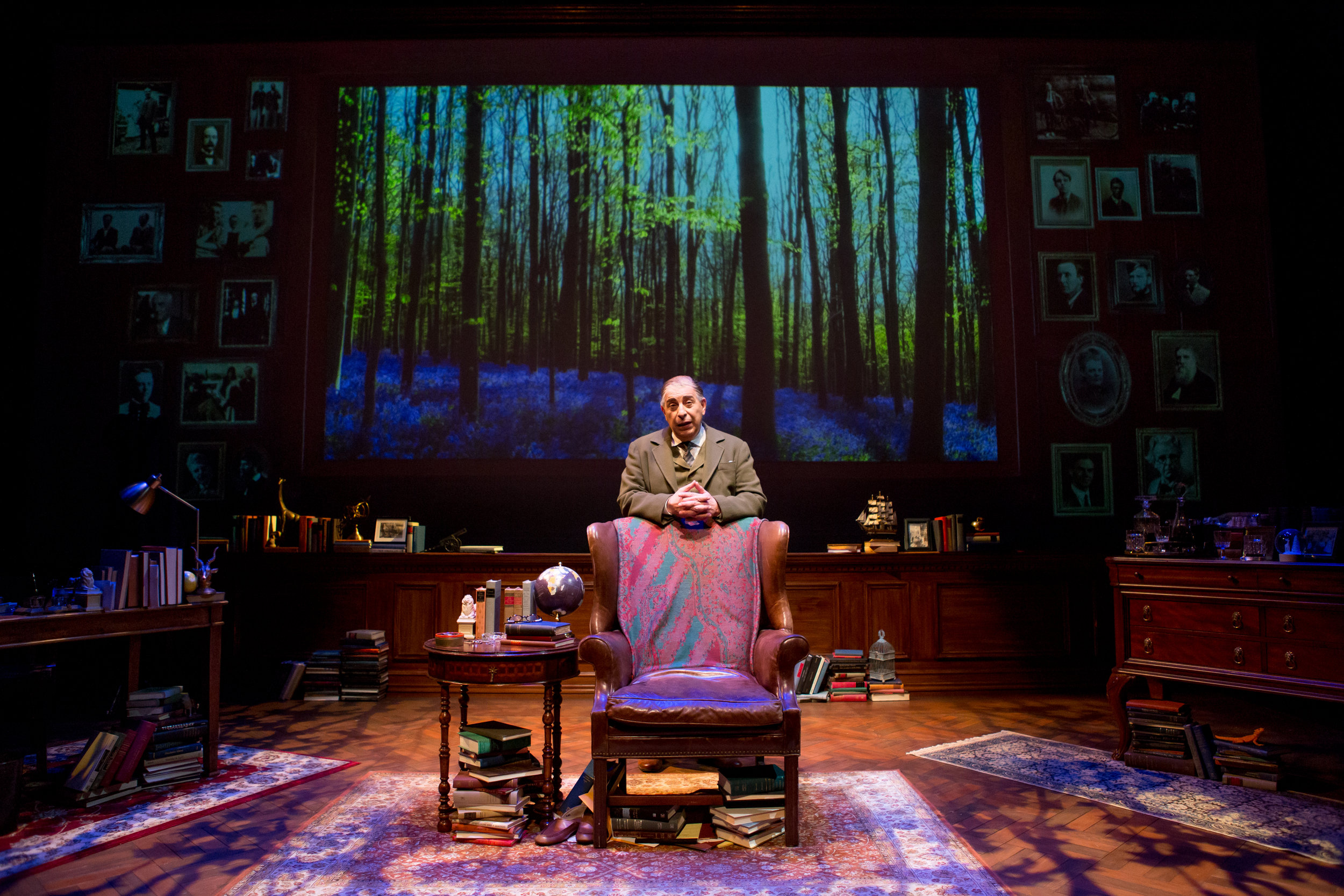The Most Reluctant Convert: C. S. Lewis Onstage, Part II
/Image credit: Jeremy Daniel
Like others who have been privileged to see what next transpired, I was thrilled and transported. It was as if C. S. Lewis himself walked onto the stage. The makeup was exquisite, and the resemblance to Lewis uncanny. Even the voice was near perfect—I remember having listened to one of the few extant recordings of Lewis a year ago. McLean intentionally didn’t aim at enunciating quite so thick an accent as Lewis actually had, explaining why after the play in a Q&A session. For an American audience, in particular, this was a smart decision to avoid it becoming a distraction. McLean’s classical training in voice paid its dividends.
Most people are likely familiar with what happens when watching an inferior performance, show, or movie; it’s hard not to hold it at arm’s length because there’s something mildly insulting and off-putting about the shoddy craftsmanship. In patent contrast, we also know what it’s like when we watch a particularly excellent performance: we’re drawn in, we lose ourselves in the story, we become thoroughly engaged. This was my experience as I sat and watched FPA’s production. A virtuoso performance, it was by turns instructive and convicting, insightful and hilarious, poignant and memorable.
The crisp monologues by the pipe-wielding Lewis recounted the tale of his conversion, chronicling how, step by methodical step, he traversed a path from skepticism to belief. Included in the account were the seminal figures of his life: his father, his brother, his teacher the “Great Knock,” and literary influences from Yeats to Chesterton to George MacDonald, whose Phantastes “baptized” Lewis’s imagination prior to his conversion.
Lewis’s aversion to Christianity was hard for him to square with the fact that so many of his favorite writers, whose writing tasted most real, were Christians. His hard-thinking friend Owen Barfield’s conversion to Christianity upset Lewis, yet Lewis found Barfield’s logic unassailable. Too many aspects of life, to be taken seriously—from consciousness to morality to reason itself—require rock bottom reality to be intelligent. Coghill helped Lewis see the virtues as relevant to understanding reality; Tolkien enabled him to see that Christianity is the True Myth; and gradually Lewis became open to the Absolute, then to Spirit, then to God, then to the Incarnation, each incremental step ineluctably inching toward greater and greater concreteness. Acutely mindful that it took God’s initiative to draw him, Lewis finally relented to the Hound of Heaven, admitting defeat, allowing himself to be vanquished by love, and not the least bit happy about it.
In contrast with any theology of “cheap grace,” or an accommodating Christianity that readily capitulates to swirling cultural whims, blithely smearing the name “Christian” on views conditioned by secularity rather than scripture, Lewis seemed intuitively to grasp from the start that real Christianity would be costly, that its implications were radical, that its demands were all-encompassing. Little wonder he counted the cost, and, after finally relenting—first to theism, then to Christianity—he was, by his own admission, the most reluctant and dejected convert in all of England. Far more quickly than most, he was able to apprehend the paradox of Christianity: to find life we must lose it, to live we must die, and that ultimately we can’t hold anything back.[su_pullquote align="right"]Lewis seemed intuitively to grasp from the start that real Christianity would be costly, that its implications were radical, that its demands were all-encompassing.[/su_pullquote]
The play was simply spectacular, and we loved it. Most of the audience stayed for the Q&A, and about ten or fifteen minutes after the play was done, McLean re-emerged, this time as himself rather than Lewis. It was a remarkable metamorphosis! Donning salmon slacks and a coal shirt, his hour as Lewis was clearly over, and now it was time to hear from the actor and writer himself. He joked about his pants, exuded confidence, showed relaxed body language, sat in the chair, and patiently fielded questions from the audience. His answers were perspicacious and trenchant, revealing him to be well read and often quite eloquent and erudite.
Asked about obstacles doing a play like this in New York, he said that theatre is a great venue to have these sorts of conversations. He’s convinced that people want to have such dialogues, but are often unsure how to do it. He spoke of his admiration for Lewis, despite admitting that some of Lewis’s writings were an acquired taste, demanding effort to apprehend them well. He had largely relied on Lewis’s own words for this play, but had to work hard to thin out some of Lewis’s diction and elaborate explications to make the ideas more widely accessible and understandable.
The result, to my thinking, was a veritable “greatest hits” woven together masterfully. I had enjoyed the play immensely, and the Q&A only enhanced my appreciation for McLean, and in a few moments Marybeth and I would get the chance to speak with him personally.










